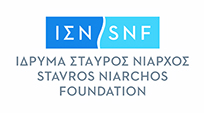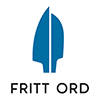
SKOPJE - Two Macedonian journalists supported with a work grant by the Danish Scoop project were awarded a national journalism price for a story on piracy in their country.
Surely the team is happy, but in itself this is not huge news. Yet in the six-year story of the Scoop project, this is the 14th of national and international awards won by colleagues working on Scoop research grants.
Since the summer of 2003 Scoop has supported about 200 journalistic research projects stretching from small, local investigations to multi-language, multi-country international researches. Scoop stories have had an impact, where corrupt officials were put on trial or similar, concrete consequences. However measuring the general result of the model is harder.
Here the national and international awards, that Scoop supported projects have won, seem to be a good indicator. Most of the awards were given on national level, the stories covered corruption during an electional campaign in Bulgaria, about Transnistria – the break-off republic in Moldova, corruption in connection with granting visa, several stories dealt with local corruption, several others with trafficking.
A cross-border investigation into energy privatisation on the Balkans won the international award for investigative journalism, the Global Shining Light Award. And indeed Scoop itself as a model once was nominated for the German Leipziger Medienpreis.
The Scoop model has a few key features. The money for the research stipendia is granted by the Danish foreign ministry under the neighbourhood media programme and via the Danish organisation International Media Support. The journalistic part, however, is taken care of by the Danish Association for Investigative Journalism, FUJ, a membership based organisation promoting investigating journalism. FUJ colleagues volunteer to maintain the contact with colleagues in the recipient countries, so Scoop has developped a peer-to-peer model for the granting procedure. The volunteers have one part time coordinator, who also is an FUJ member. Scoop also gathers it’s grantees on bi-annual conferences, and some of the grantees are invited to present their stories at international conferences, like the Global Investigative Journalism Conference.
The model, which was developped for the non-EU Balkan countries and the Ukraine, has been adjusted for a similar project in some of the Arab countries, and is currently developped further for Western Africa, the Caucasus and most likely also other regions. Scoop-Classic (covering the Balkan countries and the Ukraine) has a budget of € 1.2 million from 2008 to 2011.
Written by Brigitte Alfter








